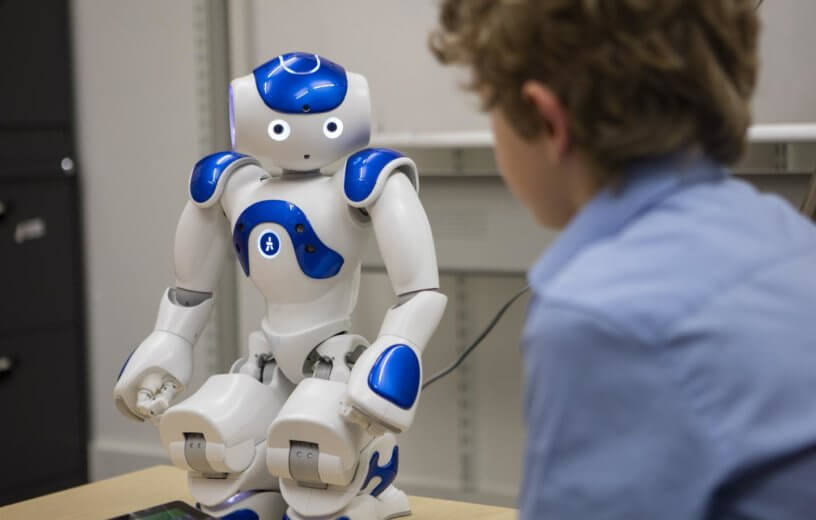PLYMOUTH, England — Robots appear to have the power to greatly influence the opinions of children, a new study finds.
Researchers from the University of Plymouth compared how adults and children completed identical tasks in the presence of their peers and humanoid robots. They say adults showed a greater allegiance to their peers, while children appeared to be more influenced by the robots.
Previous studies have shown that adults tend to be influenced by the people around them, but this was one of the first studies to compare that influence when completing basic tasks with robots.
Children between ages 7 and 9 participated in the study and took on a test known as the Asch paradigm, which challenges viewers to compare the length of four lines on a screen. Typically, when taking the test alone, viewers almost never answer incorrectly, but when completing it with others present, they tend to answer how others answer. The authors found that children answered questions correctly 87 percent of the time when they were alone. But when paired with robots, they were more likely to give the same answers as given to them by the humanoids — doing so 74 percent of the time — even when they were incorrect.
“People often follow the opinions of others and we’ve known for a long time that it is hard to resist taking over views and opinions of people around us. We know this as conformity,” explains Tony Belpaeme, Professor of Robotics at the university, in a release. “But as robots will soon be found in the home and the workplace, we were wondering if people would conform to robots.”
The same effect did not occur when adults took part in the study. Researchers worry the results could point to the influence robots could have on vulnerable children as they become more commonplace.
“What our results show is that adults do not conform to what the robots are saying. But when we did the experiment with children, they did,” says Belpaeme. “It shows children can perhaps have more of an affinity with robots than adults, which does pose the question: what if robots were to suggest, for example, what products to buy or what to think?”
The full study was published August 15, 2018 in the journal Science Robotics.
